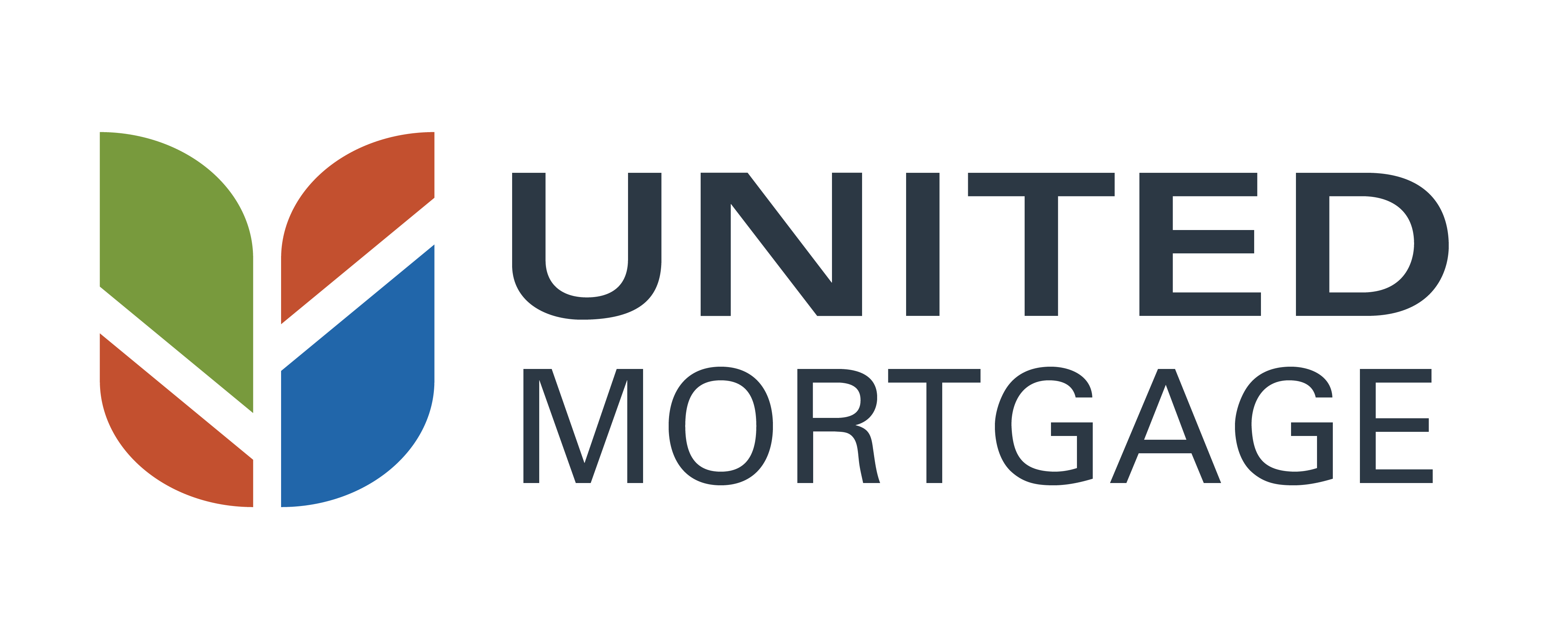Tools & Information
Loan Types
Calculators
F.A.Q.
Glossary
Loan Types
Calculators
F.A.Q.
Glossary

Types of Loans
There are many different types of mortgages to choose from, but not all mortgages are the right fit for your personal needs and life situation. If you aren’t sure which mortgage to choose, we encourage you to call us or schedule a time to sit down and talk about your options before you make a decision. Below are the different types of loans to choose from:
Single-Close Construction Loan
Single-close construction loans allow you to get both loans (the construction loan and the permanent loan) at once. When construction is completed, your loan becomes a traditional mortgage (your lender might say it gets converted, modified, or refinanced). These loans are also referred to as construction-to-permanent loans.
US Department of Agriculture (USDA) Rural Home Loan
USDA loans are 100% financed and can be a great loan solution for home buyers with low and moderate-income living in rural areas. We can help you learn about the areas that qualify according to the USDA maps.
Fixed-Rate Loans
A fixed-rate loan tends to be the most popular loan because of its security and the ability to lock your interest rate for the entire term of the loan. A 30, 20, or 15-year fixed conventional loan will have the same mortgage payment month to month. A 30-year fixed mortgage payment is most common and affordable, but choosing a 20 or 15-year loan will have lower interest rates.
Veterans Administration (VA) Loan
A VA loan is available for qualified veterans or their widows or widowers who have not remarried. VA loans have reduced interest rates, reduced closing costs, and may not require a down payment. A VA loan is perhaps the most powerful and flexible lending option on the market today
Adjustable-Rate Loan
An adjustable-rate mortgage loan offers lower interest rates in exchange for an adjustable-rate after a few years. Some borrowers choose adjustable-rate loans because it is a lower monthly payments, or they do not plan on keeping their loan for a very long time. While your monthly payments may be lower, beware that if rates rise after a few years, you could be stuck with a higher rate and could have difficulty making your monthly payments.
Federal Housing Authority (FHA) Insured Loan
A Federal Housing Administration (FHA) loan is great for home buyers with a low income and limited savings. An FHA loan allows people to buy a home with a down payment as small as 3.5% or a down payment which has been given as a gift, secured loan, or grant. An FHA loan guarantees that a lender won’t have to write off a loan if the borrower defaults.
Mortgage Calculators
Utilize our calculators and tools to help you make sense of the numbers. They are all easy and fun to use.
Standard Calculator
Calculate monthly payments of how much your home will cost you with this calculator.
Mortgage Affordability Calculator
By using a simple formula you can get an idea of how much house you can afford.
Biweekly Calculator
Use this calculator to see how much money you can save on your mortgage by making payments every 2 weeks instead every month. You can also shorten the term of the loan by using this process.
Mortgage Amortization Calculator
This is a simple calculator that shows you the principal balance of your loan over its entire term. You will be able to see what portion of your monthly payment amount is paying for the interest and which is paying down your balance. Over time, the interest amount goes down and the principal amount goes up.
Mortgage Refinance Calculator
This calculator will help you to decide whether or not you should refinance your current mortgage at a lower interest rate. This calculator will calculate the monthly payment, net interest savings, and the time it will break even on the closing costs.
Standard Calculator
Calculate monthly payments of how much your home will cost you with this calculator.
Mortgage Affordability Calculator
By using a simple formula you can get an idea of how much house you can afford.
Biweekly Calculator
Use this calculator to see how much money you can save on your mortgage by making payments every 2 weeks instead every month. You can also shorten the term of the loan by using this process.
Mortgage Amortization Calculator
This is a simple calculator that shows you the principal balance of your loan over its entire term. You will be able to see what portion of your monthly payment amount is paying for the interest and which is paying down your balance. Over time, the interest amount goes down and the principal amount goes up.
Mortgage Refinance Calculator
This calculator will help you to decide whether or not you should refinance your current mortgage at a lower interest rate. This calculator will calculate the monthly payment, net interest savings, and the time it will break even on the closing costs.
Standard Calculator
Calculate monthly payments of how much your home will cost you with this calculator.
Biweekly Calculator
Use this calculator to see how much money you can save on your mortgage by making payments every 2 weeks instead every month. You can also shorten the term of the loan by using this process. We have put together many calculators and tools to help you make sense of the numbers. They are all easy and fun to use.
More Calculators Coming soon
Check back soon we are for more calculators and finance tools.
Here are some common Mortgage Questons
What if I can't afford to put 20% down on a house?
It shouldn’t be a problem. There are many programs available today that require less than 5% down payment. The best thing to do would be to call us and we can find the right program for you.
Do you offer Custom Loan programs?
Yes, the different types of loan programs being offered are changing daily. We find the best loan scenario for all of our clients. Unlike big banks that are restricted to using loan programs and rates being offered at that time by the bank, we have access to many lenders. What we do is find the lender that best fits your needs. Call us today and let us show you what we can do for you.
Can I use some of my IRA or 401(k) plan for a down payment?
Yes you can. However, the rules regarding this issue are constantly changing. Your best bet would be to contact your accountant. Your accountant can inform you of your best options in regards to this.
What's the difference between a fixed and adjustable rate mortgage?
With a fixed-rate mortgage, the interest rate and the amount you pay each month remain the same over the entire mortgage term, traditionally 15, 20 or 30 years. A number of variations are available, including five- and seven-year fixed-rate loans with balloon payments at the end. With an adjustable-rate mortgage (ARM), the interest rate fluctuates according to the indexes. Initial interest rates of ARMs are typically offered at a discounted (“teaser”) interest rate lower than fixed-rate mortgage. Over time, when initial discounts are filtered out, ARM rates will fluctuate as general interest rates go up and down. Different ARMs are tied to different financial indexes, some of which fluctuate up or down more quickly than others. To avoid constant and drastic changes, ARMs typically regulate (cap) how much and how often the interest rate and/or payments can change in a year and over the life of the loan. A number of variations are available for adjustable rate mortgages, including hybrids that change from a fixed to an adjustable rate after a period of years.
Is a fixed or an adjustable rate mortgage better?
It depends. Because interest rates and mortgage options change often, your choice of a fixed or adjustable-rate mortgage should depend on: the interest rates and mortgage options available when you’re buying a house and your view of the future (generally, high inflation will mean ARM rates will go up and lower inflation that they will fall), and how willing you are to take a risk. When mortgage rates are low, a fixed-rate mortgage is the best bet for most buyers. Over the next five, ten or thirty years, interest rates are more apt to go up than further down. Even if rates could go a little lower in the short run, an ARM’s teaser rate will adjust up soon and you won’t gain much. In the long run, ARMs are likely to go up, meaning most buyers will be best off to lock in a favorable fixed rate now and not take the risk of much higher rates later. Keep in mind that lenders not only lend money to purchase homes; they also lend money to refinance homes. If you take out a loan now, and several years from now interest rates have dropped, refinancing will probably make sense.
What is private mortgage insurance (PMI)?
Private mortgage insurance (PMI) policies are designed to reimburse a mortgage lender up to a certain amount if you default on your loan. Most lenders require PMI on loans where the borrower makes a down payment of less than 20%. Premiums are usually paid monthly or can be financed. With the exception of some government and older loans, you may be able to drop the mortgage insurance once your equity in the house reaches 22% and you’ve made timely mortgage payments. The Servicing Lender will have the requirements for canceling the mortgage insurance.
Don’t wait for the rates to get higher! Lock your rate TODAY!
It’s the best time to purchase or refinance, so contact us today, or simply begin the process and apply now. At United Mortgage, we will find the loan that is perfect for your scenario. No matter your needs, we are here to help!
Don’t wait for the rates to get higher! Lock your rate TODAY!
It’s the best time to purchase or refinance, so contact us today, or simply begin the process and apply now. At United Mortgage, we will find the loan that is perfect for your scenario. No matter your needs, we are here to help!
Agricultural Lending and Borrowing Terms
ACTUAL CASH VALUE
An amount equal to the replacement value of damaged property minus depreciation.
Accrued Interest
Interest that is due but not paid back to the lender on the payment date, this amount is then added to the balance owed the lender.
Adjustable Rate Mortgage (ARM)
A mortgage on which the interest rate, after an initial period, can be adjusted by the lender. The rate adjustment interval and the payment adjustment interval are the same on a fully amortizing ARM, but may not be on a negative amortization ARM.
ADJUSTMENT PERIOD
The time between interest rate adjustments for an ARM. There is usually an initial adjustment period, beginning from the start date of the loan and varying from 1 to 10 years. After the first adjustment period, adjustment periods are usually 12 months, which means that the interest rate can change every year.
AMORTIZE
Paying off a debt by making regular installment payments over a set period of time, at the end of which the loan balance is zero.
Amortization Schedule
Provided by mortgage lenders, the schedule shows how, over the term of your mortgage, the principal portion of the mortgage payment increases and the interest portion of the mortgage payment decreases.
ANNUAL PERCENTAGE RATE (APR)
How much a loan costs annually. The APR includes the interest rate, points, broker fees and certain other credit charges a borrower is required to pay.
APPRAISAL
A professional analysis used to estimate the value of the property. This includes examples of sales of similar properties.
APPRECIATION
An increase in the market value of a home due to changing market conditions and/or home improvements.
ASSETS
Everything of value an individual owns.
ASSUMPTION
A home buyer’s agreement to take on the primary responsibility for paying an existing mortgage from a home seller.
BALLOON MORTGAGE
A mortgage loan with initially low-interest payments, but that requires one large payment due upon maturity (for example, at the end of seven years).
BUY DOWN MORTGAGE
A mortgage loan in which one party pays an initial lump sum in order to reduce the borrower’s monthly payments.
CAPACITY
Your ability to make your mortgage payments on time. This depends on your income and income stability (job history and security), your assets and savings, and the amount of your income each month that is left over after you’ve paid for your housing costs, debts and other obligations.
CLOSING (CLOSING DATE)
The completion of the real estate transaction between buyer and seller. The buyer signs the mortgage documents and the closing costs are paid. Also known as the settlement date.
CLOSING AGENT
A person who coordinates closing-related activities, such as recording the closing documents and disbursing funds.
CLOSING COSTS
The costs to complete the real estate transaction. These costs are in addition to the price of the home and are paid at closing. They include points, taxes, title insurance, financing costs, items that must be prepaid or escrowed and other costs. Ask your lender for a complete list of closing cost items.
COLLATERAL
Property which is used as security for a debt. In the case of a mortgage, the collateral would be the house and property.
CONDOMINIUM
A unit in a multi-unit building. The owner of a condominium unit owns the unit itself and has the right, along with other owners, to use the common areas, but does not own the common elements such as the exterior walls, floors and ceilings or the structural systems outside of the unit; these are owned by the condominium association.
CREDIT REPORT
A document used by the credit industry to examine your use of credit. It provides information on money that you’ve borrowed from credit institutions and your payment history.
CREDIT SCORE
A computer-generated number that summarizes your credit profile and predicts the likelihood that you’ll repay future debts.
CREDITWORTHY
Your ability to qualify for credit and repay debts.
DEED
A legal document under which ownership of a property is conveyed.
DOWN PAYMENT
A portion of the price of a home, usually between 3-20%, not borrowed and paid at closing.
EARNEST MONEY DEPOSIT
The deposit to show that you’re committed to buying the home. The deposit will not be refunded to you after the seller accepts your offer, unless one of the sales contract contingencies is not fulfilled.
EQUITY
Ownership interest in a property after liabilities are deducted. Also referred to as your asset
ESCROW
A lender-held account where a homeowner pays money toward taxes and insurance of a home.
ESCROW ACCOUNT
The actual account where the escrow funds are held in trust.
FIXED RATE MORTGAGE
A mortgage loan in which the interest rate remains the same for the life of the loan.
GIFT LETTER
A letter that a family member writes verifying that s/he has given you a certain amount of money as a gift and that you don’t have to repay it. You can use this money towards a portion of your down payment with some mortgages.
GOOD-FAITH ESTIMATE
A written statement from the lender itemizing the approximate costs and fees for the mortgage.
HAZARD INSURANCE
Insurance coverage that pays for the loss or damage to a person’s home or property
HOME INSPECTION
A professional inspection of a home to determine the condition of the property. The inspection should include an evaluation of the plumbing, heating and cooling systems, roof, wiring, foundation, and pest infestation.
HOMEOWNER’S INSURANCE
A policy that protects you and the lender from fire or flood, which damages the structure of the house; a liability, such as an injury to a visitor to your home; or damage to your personal property, such as your furniture, clothes or appliances.
HUD-1 SETTLEMENT STATEMENT
A final listing of the costs of the mortgage transaction. It provides the sales price and down payment, as well as the total settlement costs required from the buyer and seller.
INDEX
The published index of interest rates used to calculate the interest rate for an ARM. The index is usually an average of the interest rates on a particular type of security such as the LIBOR.
INTEREST
The cost you pay to borrow money. It is the payment you make to a lender for the money it has loaned to you. Interest is usually expressed as a percentage of the amount borrowed.
INTEREST ONLY MORTGAGE
A mortgage where the borrower pays only the interest on the loan for a specified amount of time.
INVESTMENT PROPERTY
A property not considered to be a primary residence that is purchased by an investor in order to generate income, gain profit from reselling or to gain tax benefits.
LIABILITIES
Your debts and other financial obligations.
LIEN
A claim or charge on property for payment of a debt. With a mortgage, the lender has the right to take the title to your property if you don’t make the mortgage payments.
LOCK-IN RATE
A written agreement guaranteeing a specific mortgage interest rate for a certain amount of time.
MARGIN
A percentage added to the index for an ARM to establish the interest rate on each adjustment date.
MARKET VALUE
The current value of your home based on what a purchaser would pay. An appraisal is used to determine market value.
MORTGAGE
A legal document that pledges property to a lender as security for the repayment of the loan. The term is also used to refer to the loan itself.
MORTGAGE INSURANCE
Insurance that protects lenders against losses caused by a borrower’s default on a mortgage loan. Mortgage insurance (or MI) typically is required if the borrower’s down payment is less than 20 percent of the purchase price.
POINTS
1% of the amount of the mortgage loan. For example, if a loan is made for $50,000, one point equals $500.
PRINCIPAL
The amount of money borrowed to buy your house or the amount of the loan that has not yet been repaid to the lender. This does not include the interest you will pay to borrow that money. The principal balance (sometimes called the outstanding or unpaid principal balance) is the amount owed on the loan minus the amount you’ve repaid.
RATE CAP
The limit on the amount an interest rate on an ARM can increase or decrease during an adjustment period.
REFINANCE
Paying off an existing loan with a newer, usually lower rate loan.
REPLACEMENT COST
The cost to replace damaged personal property without a deduction for depreciation.
SERVICER
A firm that performs functions in support of a mortgage that include collecting mortgage payments, paying the borrower’s taxes and insurance and generally managing borrower escrow accounts.
SHORT SALE
The process in which a servicer works with a delinquent borrower to sell the house by a real estate agent prior to the foreclosure sale.
TITLE
The documented evidence that a person or organization has ownership of real property.
TRUTH-IN-LENDING ACT (TILA)
Federal law that requires disclosure of a truth-in-lending statement for consumer loans. The statement includes a summary of the total cost of credit, such as the APR and other specifics of the loan.
UNDERWRITING
The process a lender uses to determine loan approval. It involves evaluating the property and the borrower’s credit and ability to pay the mortgage.
What Clients Say About Us
“I just wanted to thank you for constantly following up with me. The last time I refinanced it seemed as if I always had to follow up with the mortgage company. Thanks for staying on top of everything and keeping things moving forward.”
“I wanted to let you know how impressed I was with the job everyone did at your company. I have refinanced several times in the past and usually pick the company that has the lowest rates. Of course, I did the same when I chose your company. However, this time I received great service to go with the low rate.”
“Your company was so much more professional than the last mortgage company I used. Every question I asked was answered honestly and accurately. I would recommend you to anyone.”

Uniting People with Possibilities
Get in Touch
HQ | 9393 W 110th St, #350, Overland Park, KS 66210
888-220-1064
info@umloans.com


